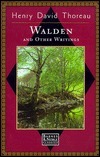
Wild Apples
Book Description
Amidst the untamed beauty of nature lies a secret world of wild fruits, where rebellion against cultivated norms takes root. Henry David Thoreau immerses readers in the lush, fragrant realm of wild apples, exploring their untamed spirit and the deeper lessons they reveal about life, nature, and the human condition. With vivid prose and philosophical musings, he invites contemplation on simplicity, freedom, and the essence of existence. As he unravels the tantalizing connections between cultivation and wildness, one question lingers: What hidden truths await when we dare to taste the wild?
Quick Book Summary
"Wild Apples" by Henry David Thoreau is a reflective essay that uses the wild apple as both subject and symbol. Thoreau takes readers through a lush journey into the Massachusetts woodlands, describing the character, history, and sensory delights of wild apple trees. He contrasts the rugged individuality and freedom of wild apples with the cultivated predictability of orchard varieties, suggesting the superiority of nature’s spontaneous bounty. Thoreau meditates on the apple’s role in history and folklore, its flavors and harvest rituals, and the way wildness in nature mirrors the freedom he values in human life. Through vivid descriptions and philosophical asides, Thoreau champions the untamed aspects of the natural world as sources of wisdom and vitality, inviting readers to savor both literal and metaphorical wildness in their own lives.
Summary of Key Ideas
Table of Contents
The Value of Wildness Versus Cultivation
Thoreau begins by painting the landscape of rural New England, where wild apple trees stand as remnants of a merged past and present. He delights in the uncultivated apple’s hardy survival and its integration into the forest’s fabric, emphasizing how the wild apple flourishes outside the constraints of orchards. Thoreau views these trees not as neglected offspring of cultivation, but as proud symbols of resilience and natural adaptation. Their presence is a testament to nature’s abundance and the subtle intertwining of human history with the landscape.
Nature as a Moral and Spiritual Teacher
Next, Thoreau contrasts the world of domesticated, orchard-grown apples with the wild varieties. He notes the superior flavor and hardiness of the wild apple, despite—or because of—its tartness and unpredictability. This contrast becomes a metaphor for the conflict between civilization and wilderness, conformity and individuality. Thoreau suggests that too much cultivation erodes natural vigor and that true richness is found in embracing wildness, both in nature and in the human experience.
Seasonal Change and the Cycle of Life
Thoreau celebrates the rituals and associations connected with wild apples: the autumnal hunts, the aroma of fermenting fruit in the woods, and the communal traditions of cider-making. He sees in these customs a connection to the rhythms of nature and the cycle of the seasons, encouraging readers to attune themselves to these elemental processes. The wild apple’s yearly emergence mirrors the renewal and return inherent in natural life, highlighting the importance of cyclical change.
Simplicity and Freedom as Ideals
Philosophically, Thoreau draws lessons about simplicity and the unadorned joys nature provides. He admires the apple’s ability to thrive in less-than-ideal conditions, seeing in its wildness an ideal of freedom from unnecessary sophistication or restraint. For Thoreau, this embodies a broader life lesson: that genuine satisfaction and meaning are found in simplicity and in living according to one’s own nature, unburdened by artificial expectations.
Human History Intertwined with the Natural World
Throughout the essay, Thoreau explores the moral, cultural, and historical significance of the apple, referencing mythology, history, and personal observation. He reaffirms humanity’s deep, ancestral bond with the natural world, urging readers to recognize and respect the wild, uncultivated energies that shape both landscape and spirit. Ultimately, "Wild Apples" is a tribute to embracing and learning from the untamable aspects of life and nature, celebrating the enduring wisdom found off the beaten path.
Download This Summary
Get a free PDF of this summary instantly — no email required.





